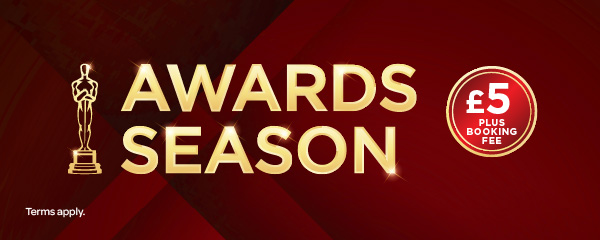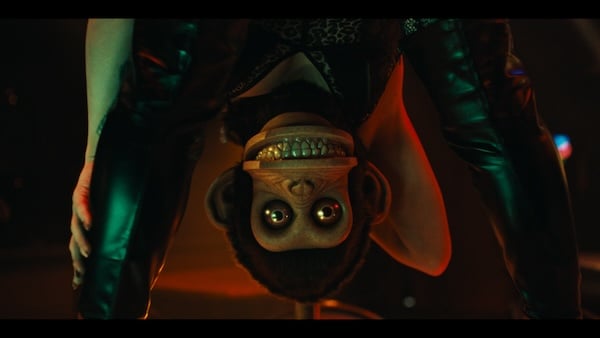
Horror is a whole new animal in the outrageously gory and blackly comic new offering, The Monkey. The film reaps a twisted meeting of the minds between Osgood 'Oz' Perkins, director of Longlegs, Saw and Insidious filmmaker James Wan, and horror author Stephen King on whose short story it's based.
Theo James stars in a dual role as Hal and Bill, twin brothers traumatised by their childhood memories of a mechanical toy monkey that spelled grisly death for those in the nearby vicinity. Perkins mines this surreal conceit for dark laughs and splatterific pay-offs (imagine Final Destination, but turned up to 11). Here's a little taster.
Perkins is one of the leading lights of contemporary horror cinema and we caught up with him to discuss King's work, the film's themes of mortality and why horror movies are intrinsically made for the big screen. He's joined by James during our chat, so check it out below and book your tickets for The Monkey at the end of this post.
I enjoy the way the film explores the relationship between comedy and horror. Do you consider those two things as sides of the same coin?
Osgood Perkins: Sure. I think in this case, I was hoping it would be a comedy that happened to have a lot of blood in it.
If you want to make a financier or a studio immediately afraid, you say, 'Comedy-horror'. They hate that. It's so hit-and-miss. Most of the time, it's a hard miss. I think it's a hard miss because most of the time, it's quite stupid. We were smart, I think, in making our humour deadpan and sophisticated. The actors are f*****g smart, funny people.
We didn't pander, you know? We stayed true to what we think is good and what we think is funny. We didn't stoop and treat the audience like they're dumb because they're not. They're smarter than we are.
Theo James: I knew Oz before I read the script. I loved The Blackcoat's Daughter. I knew all his work. I read the script and loved it. I then got on the phone with Oz and said, "Love the script, and it's really f****g funny!" [Both laugh] I was, like, checking in with Oz and asking, "Is this the region we're supposed to be in?"
There's the adage that Oz has repeated before, which is if you're going to make a story about a toy monkey, you have to make it funny. But there is something about the blackness of the humour in the film. Death and humour are intimately linked, in a funny way. Understanding death and finding some humour in it. I
know on a personal level that when death happens, the days after you're trying to find humour. Not in the death itself, necessarily, but some lightness in a general sense. [Both laugh]
It's a natural human impulse, right?
Theo: Yes, absolutely.

Theo, you're drenched in 'claret', fake blood, for a lot of this movie. I've heard from actors who've made horror movies that this can be an... interesting experience. What are the practicalities of filming those scenes?
Theo: It's good. Don't get it in your eyes! With the realtor scene, we had to play with that because initially, I think they drenched me too much.
Osgood: We shot it, then we reshot in and then I ended up using the first take.
Theo: Oh, did you? I didn't know that! [laughs]
Osgood: It was important to apply the blood with the glasses on so that when he takes them off, he's got the imprint.
Theo: It's part of the job. Sticky, is how I'd describe it.
"I was hoping to make a comedy that would have a lot of blood in it" – Osgood Perkins
Osgood, to recap, you're adapting a slim Stephen King story from his Skeleton Crew collection. What were the challenges of expanding that?
Osgood: From the get-go, it was easy. The image is so strong. Everyone knows that feel something icky from that toy monkey face. Whatever nation you're in, whatever upbringing you've had, for some reason, that image is uncanny to the human eye. I felt like I had a lot going for me just because of that.
I also connected to the story and the senseless, almost impossibly surreal aspect of death. I've encountered some in my life and so I immediately felt like something of an expert. When you're creating something, that expertise is something that you crave. Sometimes it's harder to mine expertise on something but I tend to write about myself all the time.
In this case, it all coalesced. I had this beautiful central image, plus the creativity of arguably the greatest living horror author and the personal connection. When you put those three things together, at that point it was like downhill skiing.
Theo: There was a feeling of synthesis in that way, even just from my perspective of reading the material. As an actor, you can always tell when things are working. One doesn't always know what the outcome is going to be but in terms of the writing process, Oz was always incredibly quick.
If new scenes were added, or tweaks to existing scenes, he would practically do them while sitting at the monitor. There was always cohesion. Oz had linked the story to parts of himself and it all made sense.

Osgood, your father was Anthony Perkins, the star of Alfred Hitchcock's Psycho. That film casts a huge shadow over horror cinema to this day. Did he ever discuss with you the cultural impact of starring in the movie?
Osgood: My dad was never really one to sit down and talk about it. But it was certainly folded into my experience as a child. I understood that my dad was a centerpiece in the genre and the movies in general. That awareness was always there. But it was always a positive.
The older I got and the more I got into movies, and as I started to make my own movies, watching my dad in Psycho was always a treat. I always felt 'chuffed', as they say in the UK. It's a f*****g good thing. It's a beautiful performance by an actor. It's something modern and special. I'm very proud of it.
Theo, do you remember watching Psycho for the first time?
Theo: Yes, of course. It's such a part of our cultural understanding regarding horror films, storytelling and death.
Funnily enough, just before we shot The Monkey, I took one of my children to Universal Studios in L.A. and we did the backlot tour. It goes past the Bates house up on the hill. Then the actor comes out dressed as Anthony Perkins as 'Mother', so making The Monkey after that felt surreal in some ways. But yes, of course, it's a seminal film.
A question for both of you: why are horror movies meant to be experienced on the big screen?
Theo: It's the audience. Being in a packed cinema. Great cinema is about collective response, and especially big, entertaining movies.
Horror, as a space, is meant to be shown on a big screen with a bunch of other people that you don't know. They may be reflecting and reacting, being shocked and scared, or finding things humorous. To watch that in the cinema – it's the only appropriate way to treat horror.
It's especially true for a film like this. There's so much comedy and so many shocking elements to it that experiencing the film with a group of people is so much better.
Osgood: I also think a lot of what works in the horror genre is that it elicits curiosity, right? What the hell's going on? What happens after death? What the f**k is happening? What's behind the veil? Is there such a thing as ghosts? How do I die?
That curiosity brings people together. It also applies when you're at a circus or a freak show. There's something collective about curiosity, which I think makes horror movies work in a theatre.
"Great cinema is about collective response and this film has so much comedy, so many shocking elements, that it's best to experience it with a group of people" –
Theo James
This movie reflects on themes of mortality in a really interesting way: death is coming for us in every form, but we don't see it coming. Was that an interesting concept to play around with?
Osgood: If you think about it, that's every horror movie. Virtually every horror movie centres around the notion of how is one going to die, who's it going to be and what weapon is going to be used. Is it going to be a monster or something else that I don't expect? Is it going to be my fault?
Those central questions shape the horror movie-going experience. All I tried to do with The Monkey was foreground the surreal nature of that question. How do I die? I wanted to put that in the front and make it the centrepiece.
Theo: With the two brothers in the film, Hal is someone who's accepted death in a way, and that informs his deadpan delivery and understanding. Bill, on the other hand, is trying to escape death. He's trying to embrace immortality in a way and he's afraid of death.
These two people acknowledge death in opposing ways. That's an interesting conceit to explore as an actor.

It's time to confront The Monkey this February. Book your tickets via the following link.
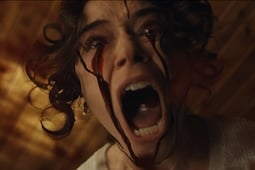
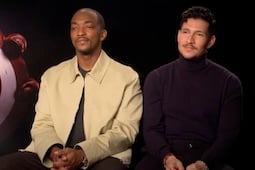

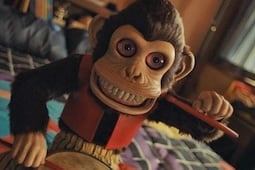
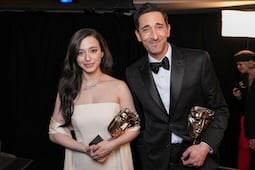
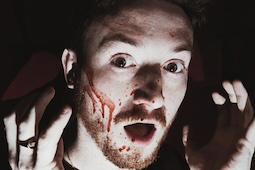
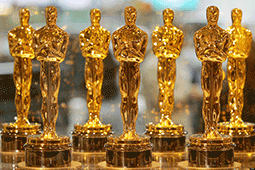
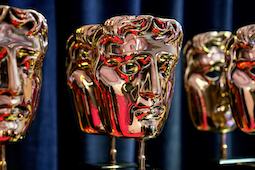
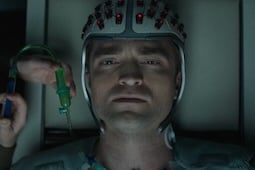
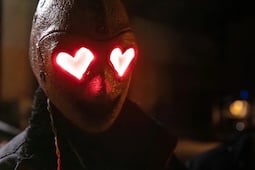

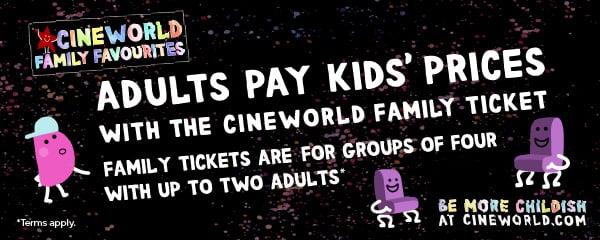

.jpg)
.png)



